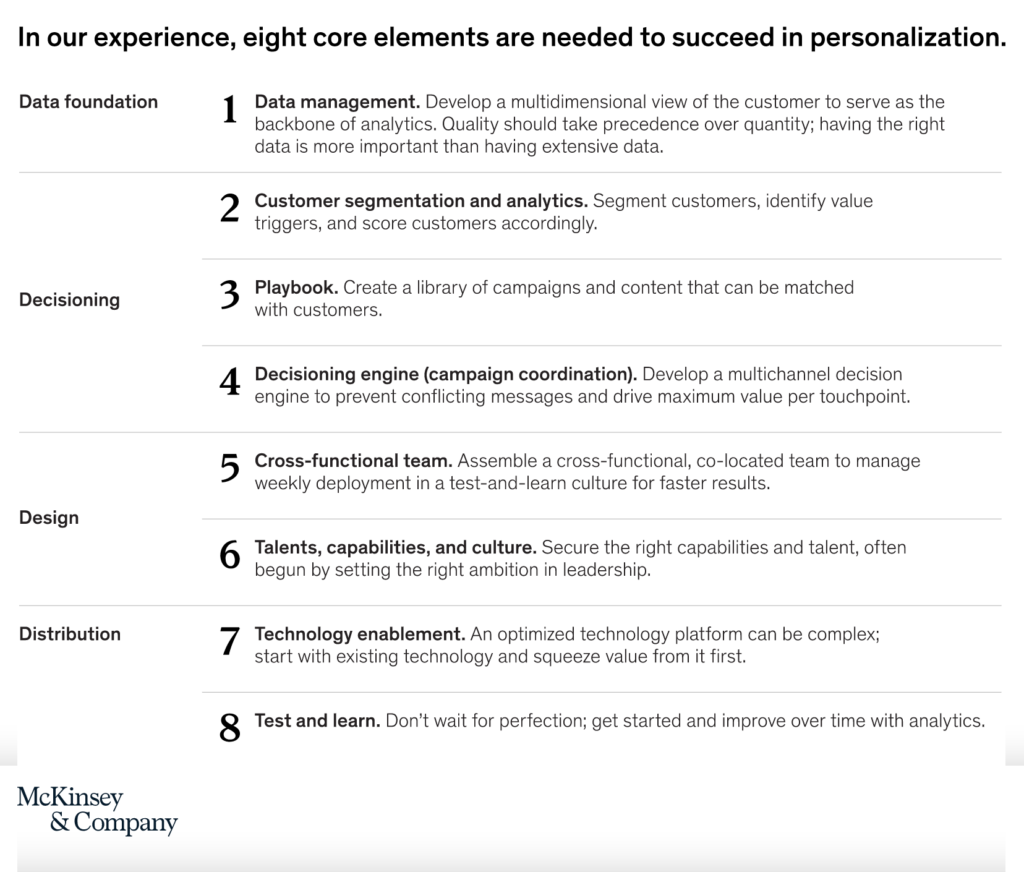 Business success for most of us means a financially-healthy company with legions of loyal customers served by engaged, happy employees. It might include a social cause that brings management, staff and customers together through shared values. Regardless of what you’re selling today, the majority of your buyers are digitally-savvy and have expectations when they engage with your company.
Business success for most of us means a financially-healthy company with legions of loyal customers served by engaged, happy employees. It might include a social cause that brings management, staff and customers together through shared values. Regardless of what you’re selling today, the majority of your buyers are digitally-savvy and have expectations when they engage with your company.
Automotive retail has long been a place where saying YES to customers is embedded in operations. Eager salespeople want their customers to say YES to them, so they work earnestly to provide what customers want.
Unfortunately, over the years, automotive sales trainers have hammered home the need to say YES at every turn, and in their effort to please the customer, salespeople sometimes over-promise.
With today’s hyper-connected world, honesty and transparency rule.
Get my latest business tips, exclusive content, and a bit of fun straight to your inbox with the Kruse Control Newsletter. Boost your profits with our proven advice. Sign up now – it’s free!
Honesty is a competitive advantage.
Earning customer trust with honesty and integrity is not a new practice. It’s the ways in which we’re able to convey those principles to customers that have changed.
A company that can creatively say YES to what customers want, ensures long term profitability by creating customers for life.
Business Success: 15 Ways to Say YES to What Hyper-Connected Customers Want
Carl Sewell, (awesome car dealer and one of my heroes) who authored the book, “Customers for Life” said:
Figure out what the customer wants and give it to ’em.
The following are 15 “Yes’s” that customers want today and I encourage you to adopt the appropriate YES culture in your organization for greater business success.
1. YES to Respect
Whether it’s online or off, customers want thoughtful care and individual attention. This is no different than how we all like to be treated, right?
Customers want you to acknowledge them quickly and politely, and to authentically treat them with respect. They want you to meet their needs and to acknowledge that it was a pleasure to serve them.
Kindness and respect cost absolutely nothing.
2. YES to Unique Experience
Determine what you do better than anyone else…then do it.
If you’re not sure, ask your best customers what brought them to you (and what keeps them coming back).
Take time to analyze your online reviews. If they’re positive, it’s a simple way to determine why your customers choose you rather than your competitor. Negative reviews will tell you even more.
3. YES to Listen and Respond Quickly
Whether it’s in “top of funnel” engagement via social media, to “mid-funnel” educational info, to “bottom of funnel” sales transactions and finally after-purchase loyalty, listening and responding quickly can mean the difference between keeping a customer for life or losing them to a competitor.
Nobody likes the feeling of being ignored. Business success depends on your ability to listen and respond to customers. While some expectations may seem irrational, studies report that today’s tech-savvy consumers want their online questions addressed promptly; 42% expect a response within one hour. (source: Convince and Convert)
Social media is a 24-7 medium and many companies have realized they need to limit their response time. When a customer has an issue, we know that listening and responding quickly can save it from gaining traction and becoming bigger than it needs to be.
4. YES to Expert Guidance and Authority
Any purchase involves risk and customers are looking for information in order to minimize that risk. They have worries about what could go wrong and with your expert guidance, including publishing helpful content, you can share what can go wrong and how to avoid it.
Help the customer avoid potential pitfalls and become the authority in your industry by regularly publishing original, high-quality content.
5. YES to Trust
Trust takes years to build, seconds to break and forever to repair.
Honesty and integrity are not just words. If these are attributes of the company’s brand, they must be present in every customer touchpoint.
Unlike the scenario I spotlighted earlier, successful sales processes earn a customer’s trust…and trust fosters loyalty.
One of the ways to improve sales is to include a process to build your digital reputation.
It’s hard to argue with the data.
- 90% of consumers read online reviews.
- 88% of customers trust online reviews as much as personal recommendations.
- 86% will hesitate to purchase from a business that has negative reviews.
- Customers are likely to spend 31% more with a business that has positive reviews.
- 92% will use a local business if it has at least a 4-star rating.
A company’s ability to earn and keep trust is reflected in online reviews. Make sure your customer’s experience warrants 4-5 stars.
6. YES to Consistent Engagement
In the old days, salespeople and companies would send out birthday cards and other thoughtful messages in order to consistently engage customers. Today, through email marketing and social media, we’re able to engage customers more often.
Social media is great for “staying in touch” and it provides new ways to connect on a deeper level.
Devote time each day to converse with customers and prospects. The information you publish on social media drives results. It’s all in how people perceive you and the level of help you can provide.
79% of salespeople who use social media as a selling tool outperform their peers. As “social selling” beginners with a customer-centric mindset, salespeople should follow this framework:
- Always represent your personal brand
- Know your customers inside and out
- Answer your customers’ most frequently questions
- Show what it’s like to do business with you by incorporating your repeat customers’ testimonials
Business success means to provide value by answering prospects’ questions and offer thoughtful advice until the prospect is ready to buy.
7. YES to Confidence
Customers will not buy if you can’t persuade them that you, your company and your products will truly achieve the promised results they expect.
It is nearly impossible to persuade a customer to believe in these things unless you yourself believe in them. You must make your confidence contagious.
8. YES to Value That’s Superior to Other Options
Answer this question: How do you specifically serve your customers’ needs and what distinguishes you from the competition?
Nearly every new Kruse Control client has a difficult time articulating an answer to that question with any meaningful detail. Business success depends on market differentiation.
Unless you can prove that buying from you is the right decision for the customer, the customer can and probably will buy elsewhere.
Get my latest business tips, exclusive content, and a bit of fun straight to your inbox with the Kruse Control Newsletter. Boost your profits with our proven advice. Sign up now – it’s free!
9. YES to Simplicity
Today more than ever, hyper-connected customers want minimal friction.
They need you to recognize and manage the invisible behind-the-scenes process so they can get the most out of what you offer, without wasting valuable time interacting unnecessarily. They expect you to coordinate the sales process on their behalf so they can complete it without worrying about the details.
10. YES to Empathy
Empathy is the ability to share or understand the feelings of others. Empathy is an essential element of everyday relationships and can be equally powerful when it comes to company-customer relationships.
What does it mean for a company to show empathy to its customers? On the most basic level, companies demonstrate empathy by thoughtfully shaping the customer experience. Customers should be treated like individuals, rather than sources of revenue, during every step of their journey.
11. YES to Personalization
Nearly every purchase begins online. In this far-reaching, all-encompassing online world we have come to embrace, in which so many business and personal interactions can be anonymous, customers want very personalized experiences.
Thanks to online pioneers, such as Amazon, customers have grown to expect and desire personalized experiences: a survey of 1,000 US adults by Epsilon and GBH Insights found that the vast majority of respondents (80%) want personalization from retailers. Personalization can even be called a “hygiene factor”: customers take it for granted, but if a retailer gets it wrong, customers may depart for a competitor.
Many retailers still operate under a hybrid, “bricks and clicks” strategy, making it even more difficult to implement the right levels of personalization in stores and online. McKinsey offers an effective, 8-core element approach below:

12. YES to More Communication Options
Customers want self-service, voice, digital and social channels to interact with a company and its people — and they still expect each to deliver a personalized experience. Welcome to omni-channel business operations!
- 71% of those who receive positive care via social media channels are likely to recommend your brand to others.
- Only 19% of those who don’t get any response are likely to recommend that brand.
Business success depends on how well you communicate with customers. Do not make the mistake of blocking social media at your company. It’s like turning off the phone or banning email.
Instead, implement a solid employee social media policy so that your team knows what to expect, how to leverage social media to their advantage and what to do in the event of a crisis.
13. YES to Transparency
If information is relevant to what you do, then the people who are affected by it have a right to know about it. Let customers decide whether it’s important or not and don’t filter it out for them.
We can pinpoint this push for transparency to the global recession of 2008. When it hit, it revealed the hidden actions and agendas of bankers and high-powered CEOs. This meant that consumers, who had up to this point blindly trusted their banks, were suddenly slapped in the face with a shocking reality check: Not all businesses were honest!
The recession was the first major incident that rocked consumer faith in the basic systems that keep our society afloat.
With this reality check came a new surge of determination to uncover other forms of corruption. As they say, “Fool me once shame on you; fool me twice shame on me.” Consumers were resolute that they wouldn’t be caught sleeping again.
Following the already shaken trust in bankers and politicians, consumers began to look more closely at other areas of business and what they found only served to justify their suspicions and mistrust. What was uncovered was wave after wave of corruption and powerful people doing bad things.
Who wins the car sale today?
A February 2021 Marchex Institute survey of 1,700 consumers found that “trust tied with a competitive price” was the most important factor in their choice of a dealership. One way trust is built is if sales employees can answer customers’ questions early in the process, given the time buyers spend researching before contacting a dealership
Andy Hinrichs, CEO of auto startup Digital Motors says that a dealership can achieve “the three T’s” — Transparency, which creates Trust, which saves Time — only if the customer experience is easy and consistent.
Creating that experience can’t be dictated from the top, he adds, but must start from the customer’s perspective and work backward.
14. YES to Appreciation
Loyalty programs have always been a staple of automotive retail.
Reward your hyper-connected, socially-savvy customers with special announcements, exclusive promotions or just be available to help and answer questions. Some of them may be influencers in their own communities and who doesn’t like having influencers on your side?
Create a system for earning and using social media loyalty rewards points. Customers can build loyalty points for contributing ideas to your Facebook page, checking in on Yelp or by providing positive feedback via Twitter or Instagram.
Starting a new loyalty program is a golden opportunity to show appreciation and to solicit feedback.
15. YES to Leveraging Profits for Good
More and more customers are caring about what you do with your profits.
Millennials make up the biggest part of the workforce and they are actively choosing brands that care about the planet. This is something the businesses of yesterday didn’t have to take into account. Nobody cared what they did with their money, but all that has changed.
Support causes and give back to the society you are benefitting from – a develop ways to illustrate that in your marketing. It will help to both retain and attract new customers.
FYI: 10% of Kruse Control profits go to animal welfare and advocacy. . We support H.R. 3355 The Save America’s Forgotten Equines Act to stop the transport of horses across our borders for slaughter.
Business success is saying YES to want customer want.
Business success is running a profitable organization that conducts business with honesty and integrity, makes meaningful contributions to the communities it serves and nurtures high-quality, balanced lives for its employees.
Success is also maintaining a steadfast approach to giving customers what they want.
In order to say YES to what customers want, a leader looks for growth opportunities and makes business development a priority. Build a culture of YES. Recognize, reinforce and reward the spirit of YES. There’s no better time to begin than now.
Get my latest business tips, exclusive content, and a bit of fun straight to your inbox with the Kruse Control Newsletter. Boost your profits with our proven advice. Sign up now – it’s free!
